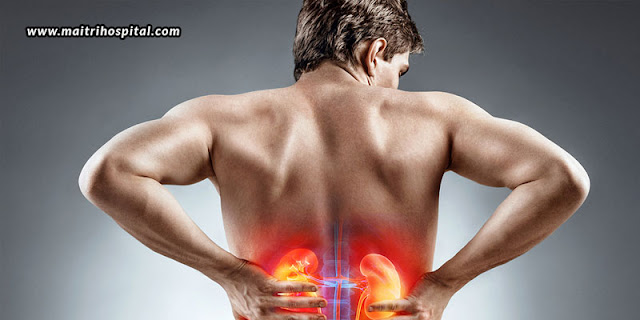Can Obesity Increase Instances Of Joint Pains?
The incidents of joint pains have been rapidly increasing since the past decade with people relying so much on machinery and automation that their lifestyle doesn’t let them burn calories with any kind of physical activities, resulting in heavy weight, which affects the bones of the hip and knee. Those who generally walk and cycle instead of driving bikes and cars; those who hit the gym regularly; those who are involved in other physical activities – all such people are maintaining their health and body. But, if you aren’t involved in such physical activities, you are likely to gain lots of weight and thus, weaken your hips and knees gradually. Thus, you need to make some lifestyle changes like including exercises, giving up on unhealthy food, and everything else that could help in reducing your weight. You can get in touch with Maitri Hospital’s general physician in Kota who can help analyze your entire body to look for any problems and advise you with all that you can do to maintain your body system effectively. And, in case you are already experiencing situations of hip and knee joint pains, you can also get in touch with their orthopaedic surgeons who are specialized to conduct hip and knee replacements.
While we stand and walk so easily, we never notice the amount of force being exerted on our hips and knees. The entire weight of our upper body is forced upon these two joints. In fact, the force on the knees is equivalent of 1.5 times our body weight with each step, thus brining upon it more burden. This burden is increased while going up and down the stairs, and running. The force can indeed reach 6-10 times the body weight! And, when we gain weight, and have crossed the level of under-obesity, the joints experience even more wear and tear. This is why obese people experience difficulty while climbing stairs, running, and squatting. This is because over-weight increases the joint reaction force within the joints, which leads to damage to the cartilage and eventual arthritic changes on the joint. This results in pain, swelling, stiffness, decreased range of motion, and inflammation in the bones and surrounding tissues.
Another research made in this field is that of a biochemical reaction that might result in knee pain in obese people. We have a hormone called leptin within our brain that is responsible for regulating food intake and maintaining body weight. Obese people tend to build resistance to this hormone, which gives them a hard time feeling full. People with such high resistance have more chances of developing arthritis, joint swelling, cartilage defects, bone spurs, and bone swelling.
Incorporating exercises and other physical activities into your daily routine will help keep your hip and knee joints robust and functioning better, while improving the overall health. In addition, you also need to work on a proper diet plan to keep your knees and hips up and running, because exercises cannot alone keep obesity at bay. Generally, you will be advised on starting with cutting back on both fat and total calories, instead of jumping on to a strict diet. This is what a professional nutritionist can advise you upon better.
To sum it up, you need a proper diet, physical activity, and an active lifestyle to keep you fit and running for a longer time.
For more information, visit: http://www.maitrihospital.com/
For more information, visit: http://www.maitrihospital.com/




Comments
Post a Comment